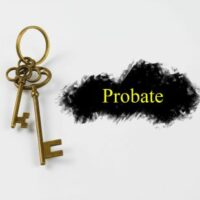How To Navigate The Probate Process

When a person dies, their assets may have to go through the probate process, depending on state law. This process involves validating the will, retitling the deceased person’s assets, paying debts, and distributing assets. While probate can be efficient for smaller estates, it is more often time-consuming and costly. In many cases, there are disputes among family members, requiring probate litigation.
The best way to avoid probate is to use a trust. However, most people use a will or no estate plan at all. In these cases, probate is often required. Here are some ways to navigate the process so that it goes smoothly.
Be Prepared
The executor of the estate should be prepared to file certain documentation with the court. This documentation includes information about the deceased person, such as :
- Certified copy of the death certificate
- Last will
- Names and addresses of heirs
- Known creditors
Which Assets Are Involved in Probate?
Anything in a will has to go through the probate process. This may include cars and household goods. Anything that the deceased person owns that is not listed in the will must also go through probate.
Assets exempt from probate are assets that pass through state law. This includes the following:
- Property held as joint tenancy with rights of survivorship
- Retirement funds with beneficiaries
- Life insurance policies with beneficiaries
- Annuities with beneficiaries
- Pay-on-death accounts
- Transfer-on-death accounts
The Process
To start the probate process, you first need a will. Contact the heirs and family members and make sure everyone is OK with the will. Once you have their consent, contact a lawyer to start the process.
Before the hearing, you will be required to send formal legal notice to heirs and beneficiaries named in the will. You’ll also publish a legal notice in a local newspaper and send notices to known creditors.
The probate court will then schedule a hearing. At this hearing, interested parties will have a chance to object to you being an executor.
The proceedings typically take place in court (lately it has been virtual court). In most cases, only your lawyer will need to appear and give updates. The court oversees the process of the executor—the person in charge of the estate—performing their required tasks, such as gathering the deceased person’s assets and paying creditors. They then distribute what’s left to heirs.
Be patient. Delays are common, and in some cases, the process can take 1-2 years to finalize. It can also be expensive. Costs may be up to 20% of the estate.
Seek Legal Help
The probate process can seem intimidating, but it’s not that bad if you know what to expect. By understanding the laws and the steps that need to be taken, you can get through the process with ease.
Having the right legal team on your side can help. Fort Lauderdale probation litigation lawyer Edward J. Jennings, P.A. can help with disputes and other probate issues. Fill out the online form or call 954-764-4330 to schedule a consultation.
Resource:
money.usnews.com/money/personal-finance/family-finance/articles/everything-you-need-to-know-about-probates
